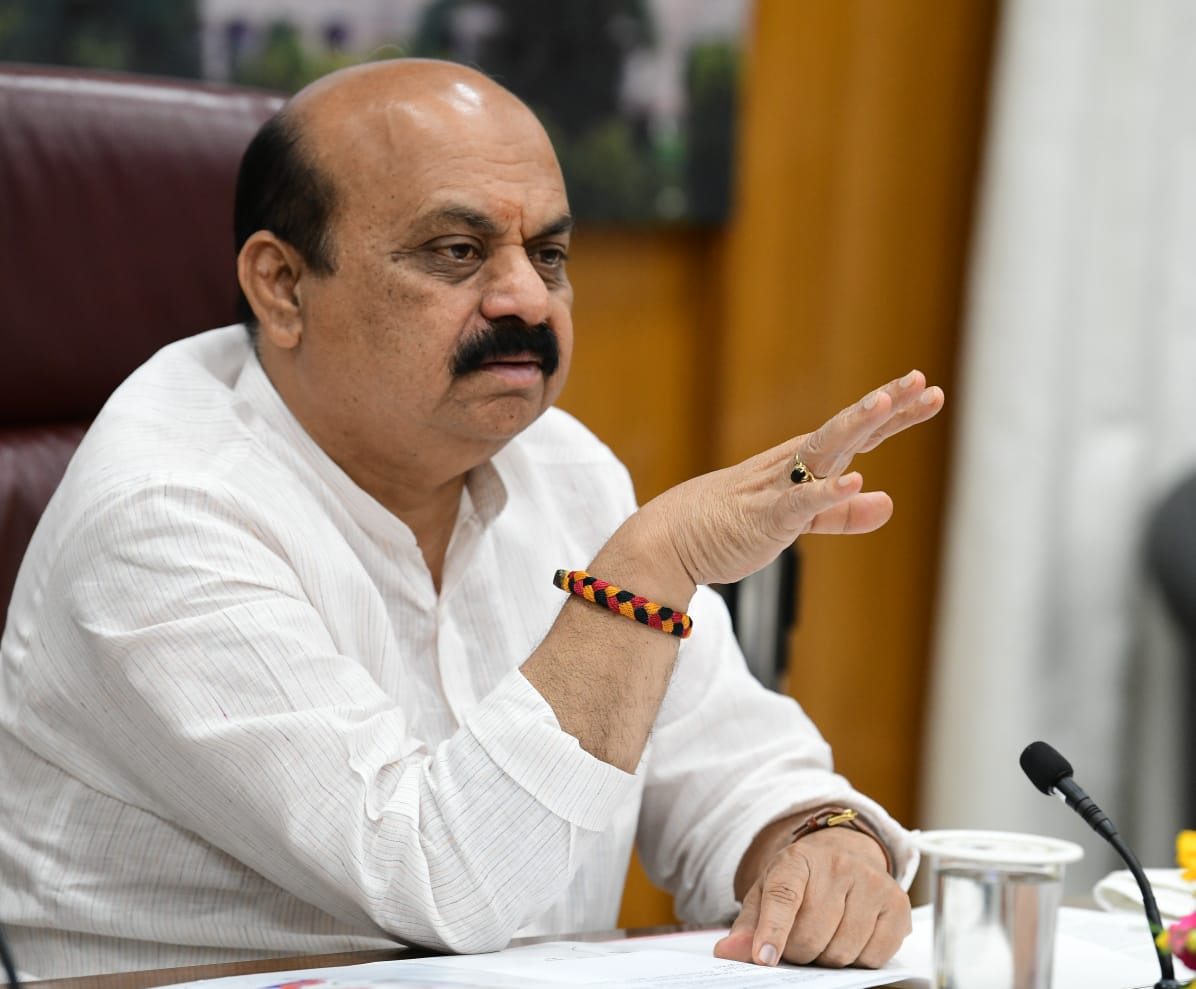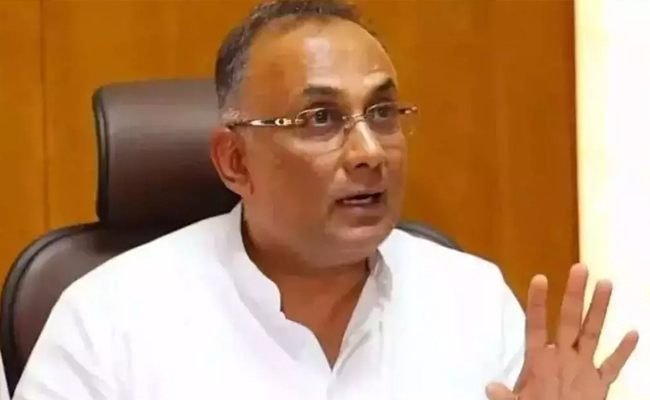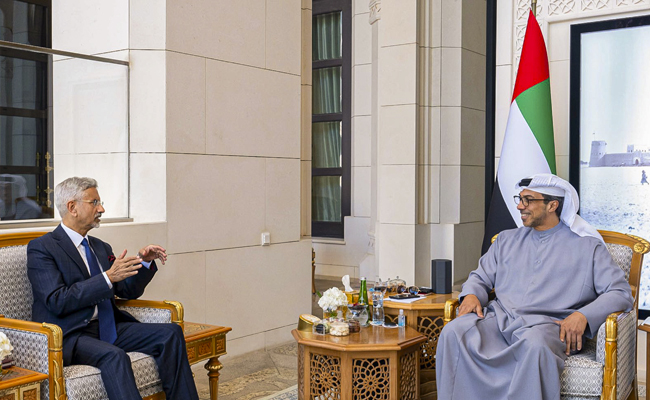Bengaluru, Sep 15: Two patients in the intensive care unit (ICU) of a hospital in Ballari died allegedly during power outage, a charge denied by the Karnataka government, which said it is ready to conduct a probe into the issue that rocked the State Assembly on Thursday.
Chief Minister Basavaraj Bommai announced a compensation of Rs five lakh to the kin of the deceased.
The government has decided to give a compensation of Rs five lakh to the families of the victims of Ballari incident, he told reporters here.
Maula Hussein (35), suffering from kidney-related ailments, and Chettemma (30), a snake-bite victim, died at the Vijayanagara Institute of Medical Sciences (VIMS) in the district headquarters town of Ballari on Wednesday at 9.30 AM and 9.35 AM respectively.
Some reports attributed the deaths to power-cut and a defunct power generator or backup at the government medical college hospital.
In the Assembly, the opposition Congress claimed that actually three people died due to alleged negligence on the part of the government and demanded that the Health Minister K Sudhakar resign.
Raising the issue during the Zero Hour, the Leader of Opposition Siddaramaiah said there was a power-cut from 8 AM to 10:30 AM and at the same time the generator was also not functioning and three people who were in the ICU died as the ventilators did not function.
He held director of the medical college, Health Department, Minister and officials, Deputy Commissioner of the district, responsible for the deaths and the government should own up.
Also, seeking to know why the generator was not readily kept available in a working condition, he further said strict action should be taken against errant officials and compensation of Rs 25 lakh each should be immediately given to the family of the deceased.
Law and Parliamentary Affairs Minister J C Madhuswamy, referring to the "language used in the notice" of the Leader of Opposition seeking to raise the issue, said it was not expected from Siddaramaiah.
"The letter states the government was directly responsible for the deaths, and they were not accidental, but a government-sponsored murder...what is this?" the Minister asked.
This led to heated exchange between Madhuswamy and Siddaramaiah, which also saw legislators from both sides joining in.
Assembly Speaker Vishweshwar Hegde Kageri intervened and brought things under control.
Ballari district in-charge Minister B Sriramulu, in his reply on part of the government, shared details about the two deaths and said they were not due to power outage.
"Hundred per cent! Maula Hussein and Chettemma's died not due to power failure and the Medical Superintendent there has also given a report in this regard...they have died of health issues they were suffering from," he said, adding that there was one-and-half-hour power backup at the hospital.
Arguing that there are reports that the deaths were due to power outage and non-availability of power backup, Siddaramaiah demanded an inquiry.
He said the government should accept its failure and should not "play on the issue of deaths." Madhuswamy maintained that one death was due to chronic kidney ailment and other was due to snake-bite, and there was adequate power backup.
The Minister added: "Still if there is suspicion, we will get an inquiry done and report it back to the House. If there is fault on part of the hospital, compensation to the deceased kin will be considered and action will be taken against those responsible."
Let the Truth be known. If you read VB and like VB, please be a VB Supporter and Help us deliver the Truth to one and all.
New Delhi: A bill to set up a 13-member body to regulate institutions of higher education was introduced in the Lok Sabha on Monday.
Union Education Minister Dharmendra Pradhan introduced the Viksit Bharat Shiksha Adhishthan Bill, which seeks to establish an overarching higher education commission along with three councils for regulation, accreditation, and ensuring academic standards for universities and higher education institutions in India.
Meanwhile, the move drew strong opposition, with members warning that it could weaken institutional autonomy and result in excessive centralisation of higher education in India.
The Viksit Bharat Shiksha Adhishthan Bill, 2025, earlier known as the Higher Education Council of India (HECI) Bill, has been introduced in line with the National Education Policy (NEP) 2020.
The proposed legislation seeks to merge three existing regulatory bodies, the University Grants Commission (UGC), the All India Council for Technical Education (AICTE), and the National Council for Teacher Education (NCTE), into a single unified body called the Viksit Bharat Shiksha Adhishthan.
At present, the UGC regulates non-technical higher education institutions, the AICTE oversees technical education, and the NCTE governs teacher education in India.
Under the proposed framework, the new commission will function through three separate councils responsible for regulation, accreditation, and the maintenance of academic standards across universities and higher education institutions in the country.
According to the Bill, the present challenges faced by higher educational institutions due to the multiplicity of regulators having non-harmonised regulatory approval protocols will be done away with.
The higher education commission, which will be headed by a chairperson appointed by the President of India, will cover all central universities and colleges under it, institutes of national importance functioning under the administrative purview of the Ministry of Education, including IITs, NITs, IISc, IISERs, IIMs, and IIITs.
At present, IITs and IIMs are not regulated by the University Grants Commission (UGC).
Government to refer bill to JPC; Oppn slams it
The government has expressed its willingness to refer it to a joint committee after several members of the Lok Sabha expressed strong opposition to the Bill, stating that they were not given time to study its provisions.
Responding to the opposition, Parliamentary Affairs Minister Kiren Rijiju said the government intends to refer the Bill to a Joint Parliamentary Committee (JPC) for detailed examination.
Congress Lok Sabha MP Manish Tewari warned that the Bill could result in “excessive centralisation” of higher education. He argued that the proposed law violates the constitutional division of legislative powers between the Union and the states.
According to him, the Bill goes beyond setting academic standards and intrudes into areas such as administration, affiliation, and the establishment and closure of university campuses. These matters, he said, fall under Entry 25 of the Concurrent List and Entry 32 of the State List, which cover the incorporation and regulation of state universities.
Tewari further stated that the Bill suffers from “excessive delegation of legislative power” to the proposed commission. He pointed out that crucial aspects such as accreditation frameworks, degree-granting powers, penalties, institutional autonomy, and even the supersession of institutions are left to be decided through rules, regulations, and executive directions. He argued that this amounts to a violation of established constitutional principles governing delegated legislation.
Under the Bill, the regulatory council will have the power to impose heavy penalties on higher education institutions for violating provisions of the Act or related rules. Penalties range from ₹10 lakh to ₹75 lakh for repeated violations, while establishing an institution without approval from the commission or the state government could attract a fine of up to ₹2 crore.
Concerns were also raised by members from southern states over the Hindi nomenclature of the Bill. N.K. Premachandran, an MP from the Revolutionary Socialist Party representing Kollam in Kerala, said even the name of the Bill was difficult to pronounce.
He pointed out that under Article 348 of the Constitution, the text of any Bill introduced in Parliament must be in English unless Parliament decides otherwise.
DMK MP T.M. Selvaganapathy also criticised the government for naming laws and schemes only in Hindi. He said the Constitution clearly mandates that the nomenclature of a Bill should be in English so that citizens across the country can understand its intent.
Congress MP S. Jothimani from Tamil Nadu’s Karur constituency described the Bill as another attempt to impose Hindi and termed it “an attack on federalism.”



_vb_22.jpeg)

